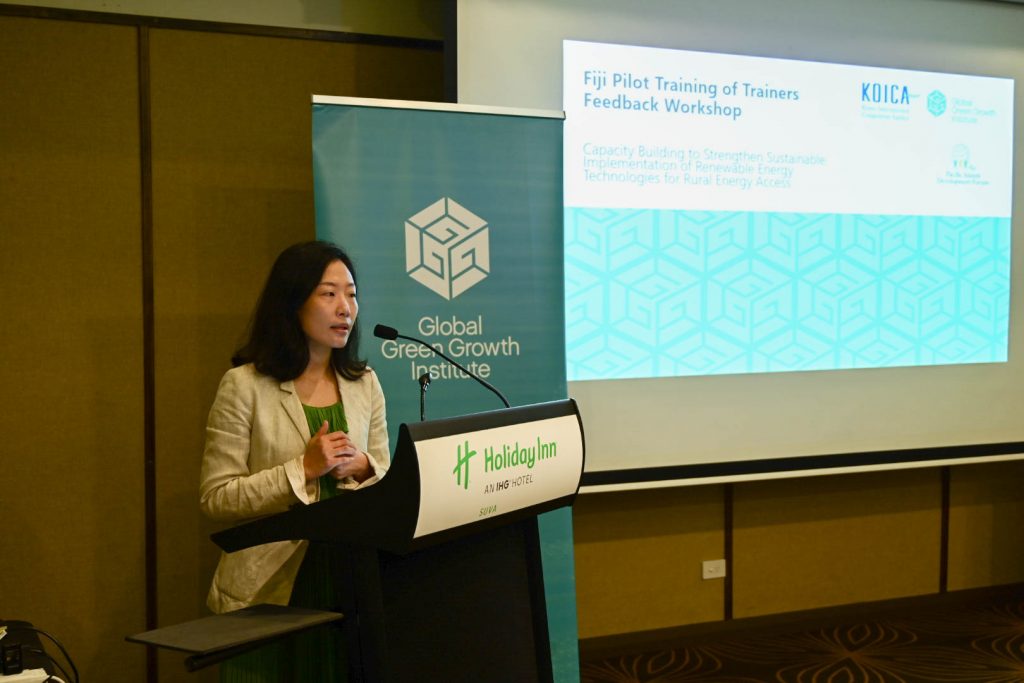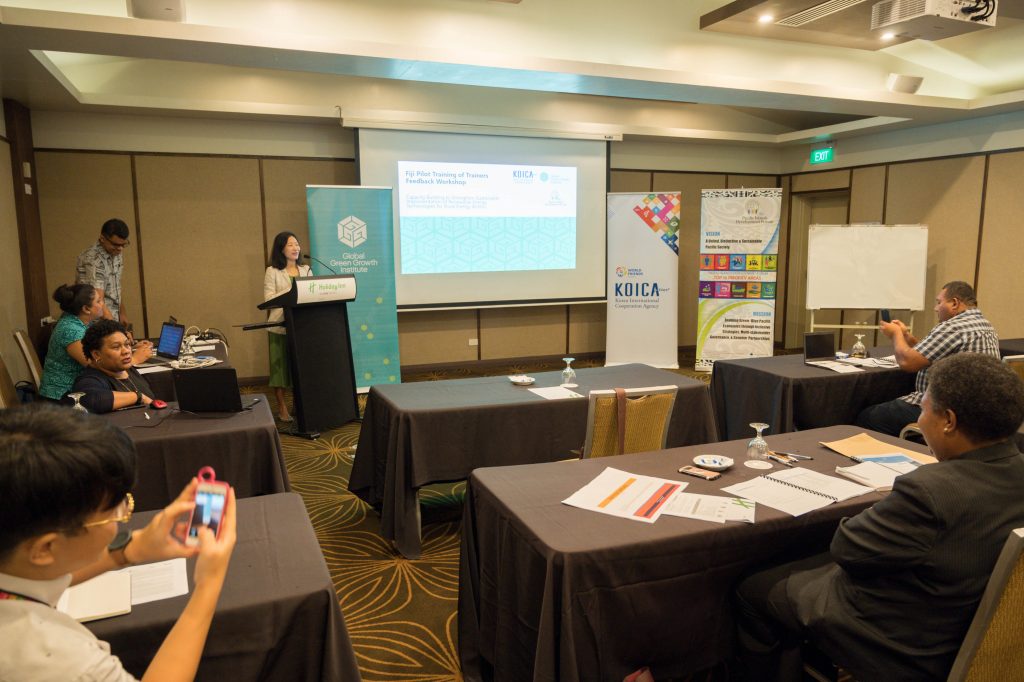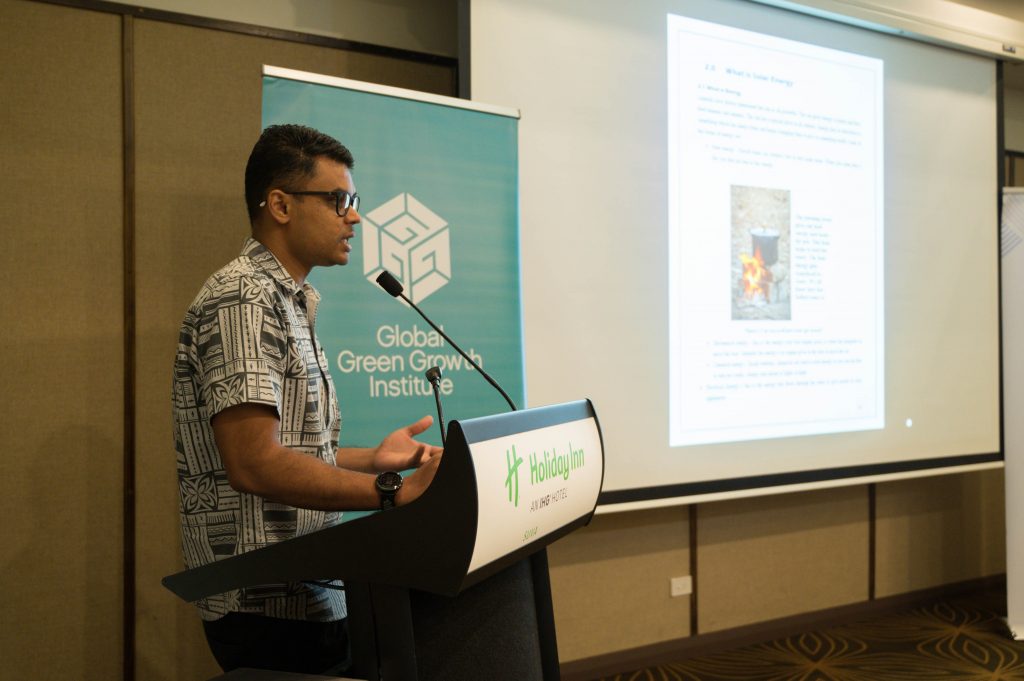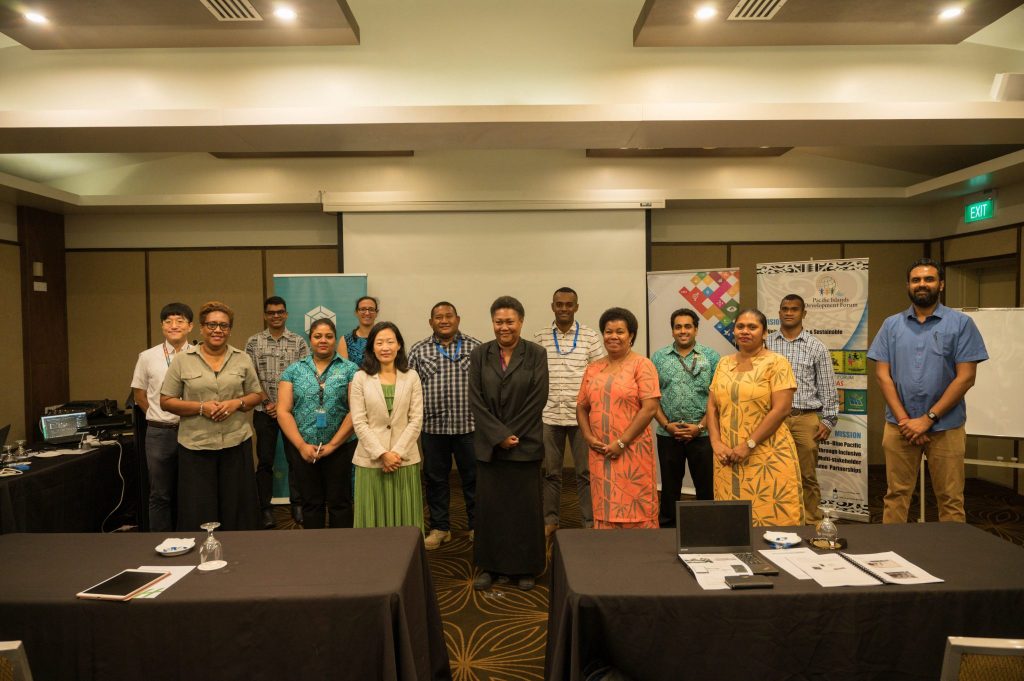Suva, Fiji, May 19, 2020 – The Global Green Growth Institute (GGGI) in partnership with the Climate Change and International Cooperation Division (CCICD) of the Ministry of Economy – Fiji, conducted a two-day pilot training of trainers (ToT) workshop on draft Solar Photovoltaic (PV) training modules for the project on Capacity Building to Strengthen Sustainable Implementation of Renewable Energy Technologies for Rural Energy Access.
This regional project is funded by the Republic of Korea through the Korea International Cooperation Agency (KOICA) and is being implemented in Fiji, Vanuatu, Solomon Islands, and Papua New Guinea, in partnership with GGGI and the Pacific Islands Development Forum (PIDF). In Fiji, the project implementation is being coordinated by GGGI in partnership with the CCICD.
The main objective of the project is to strengthen informed and inclusive decision-making by resource owners and local government officials for the integration of Green Economy (GE) and Renewable Energy (RE) into local level planning.
GGGI is working closely with local partners to develop 10 training modules to achieve this goal. In addition, local trainers will be engaged to deliver these capacity building workshops throughout the identified communities.
The purpose of this pilot ToT workshop was to present to Fijian trainers the first two draft training modules on Solar PV and get feedback on its suitability for use in training the target groups and communities identified for this project. The feedback will be reviewed to make further improvements to the modules in preparation for conducting pilot training in remote communities later this year. The other 8 training modules being developed cover a range of topics including Pico-hydro systems, Energy Efficiency, and Inclusive development, to name a few. The feedback from this workshop will also be used to improve these modules as well.

Ms. Jihi Kim (Country Director for KOICA Fiji), welcoming and giving her opening remarks on Day 1 of the workshop.
In delivering her opening remarks, Ms. Jihi Kim, Country Director for KOICA Fiji, highlighted the importance of “reaching out to the grass-root communities to help build on their capacities to allow them to be able to make better decisions in purchasing, operating and maintaining Solar PV systems. There is a huge lack of knowledge and expertise, which often leads to the most well-intended projects to prematurely fail in rural remote communities”.

Ms. Jihi Kim (Country Director for KOICA Fiji), welcoming and giving her opening remarks on Day 1 of the workshop.
The workshop was attended by local trainers from various sectors, who have vast experience in engaging and conducting trainings in remote communities around Fiji. Apart from the review of the modules technical content, the workshop also sought feedback on its suitability and possible customizations to make it easier for women and vulnerable groups to understand as well, since gender and inclusivity is one of the highest priorities for the project.
The Solar PV hardware kits used in demonstrations during the virtual training were kindly provided by The University of the South Pacific. These kits were originally developed for the USAID funded VOCTEC program developed by Arizona State University. Dr. Atul Raturi, an academic from the School of Engineering and Physics and VOCTEC coordinator for the Pacific stated that “USP is pleased to support GGGI’s capacity building initiative while providing the Solar training kit for use throughout the duration of the project. This project will help the Pacific Island Countries achieve their SDG 7 targets while building resilience, he added.”.

The next pilot ToT will be held in Port Vila, Vanuatu on the 26th and 27th of May, 2020 to receive feedback from Vanuatu based trainers invited to participate in this two-day workshop.
Similar ToT will be held in the Solomon Islands and PNG in mid-2020.
All feedback received from the four Pilot ToT’s will then be used to customize each country’s ten training modules to match the local context and needs, in preparation for the pilot community trainings and a regional workshop later in the year to review and validate the final training modules.

Group photo of KOICA Project Pilot ToT Workshop participants